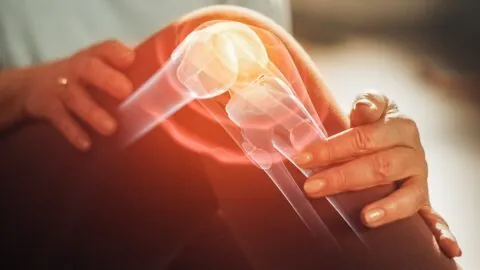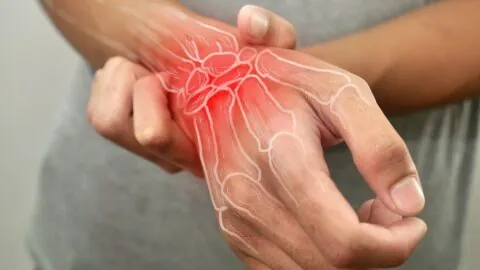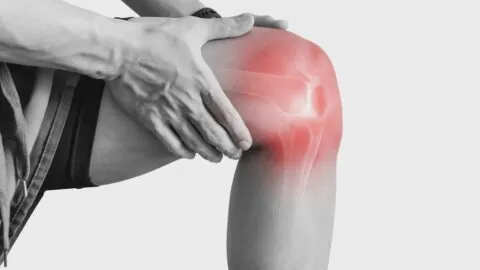February 20, 2024
Rejuvenate Bio has announced a partnership with a leading animal health company to develop a gene therapy for canine osteoarthritis. The identity of the partnering global company is as yet unknown. This San Diego-based biotech was co-founded in 2017 by Professor George Church of Harvard Medical School. It is focused on dog longevity research and...
January 08, 2024
Researchers have described how specialized nanoparticles, which deliver rapamycin and the antioxidant astaxanthin, restore macrophage balance and reduce inflammation in a mouse model of osteoarthritis. A matter of polarization Inflammation is a critical part of arthritis. Previous studies have found that inflammation of the membranes in joints (synovitis) strongly contributes to osteoarthritis [1]; in fact,...
December 21, 2023
In Aging, researchers have published their tests of a compound that counteracts the effects of tumor necrosis factor alpha (TNF-α), an inflammatory factor that promotes arthritis. Current anti-inflammatories aren't enough Rheumatoid arthritis, an autoimmune disorder that causes joint swelling, pain, and disability, is most often treated with anti-inflammatory compounds, such as non-steroidal anti-inflammatory drugs (NSAIDs),...
December 11, 2023
In a paper published on Saturday in Aging, researchers have described a method of activating the sirtuin SIRT6 to reduce DNA damage, reducing senescence and possibly treating arthritis. Sirtuins, genetic damage, and senescence Extensive previous research has found that SIRT6, a deacetylase that is dependent on NAD+, is instrumental in DNA repair [1] and naturally...
December 07, 2023
In the Journal of Nanobiotechnology, researchers have found that embedding microvesicles in a slow-release hydrogel may be an effective treatment for osteoarthritis. A line of inquiry begins to bear fruit Researchers have repeatedly found that the extracellular vesicles (EVs) released by stem cells, particularly mesenchymal stem cells (MSCs), are the main drivers behind the effectiveness...
September 22, 2023
Resarchers publishing in Aging have found that extracellular vesicles (EVs) derived from human umbilical cord mesenchymal stem cells (MSCs) reduce inflammatory markers in chondrocytes, which are responsible for building and maintaining human cartilage. An established approach This is far from the first attempt at treating osteoarthritis using stem cells. We have previously reported on a...






